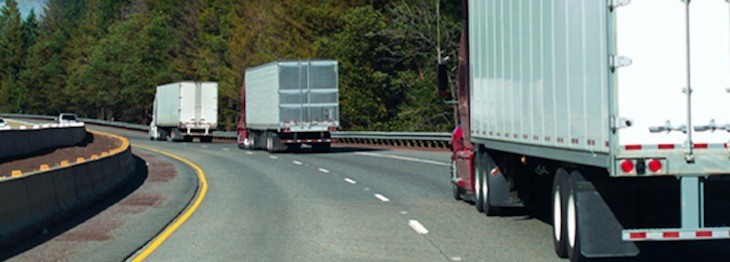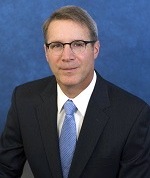ATA president gives state of industry address at Rogers conference, says tolling is ‘extortion’
by May 3, 2017 7:27 pm 609 views

Chris Spear, president and CEO of the American Trucking Associations, had a tough weekend.
Spear explained the late-night removal of language from a bill the trade organization supported, and at the end of his state of the industry address, he mentioned his mother had died.
On Wednesday (May 3), Spear spoke to trucking executives and members of the Arkansas Trucking Association at the organization’s annual conference in Rogers.
At midnight Saturday, Spear found out the language was removed from the bill to avoid a government shutdown. The language would have clarified a federal aviation law to preempt and effectively block a California law on meal and rest breaks for interstate truck drivers. The state law requires one 30-minute meal break for employees who work more than five hours a day and a second 30-minute break for those working more than 10 hours a day. The industry has spent two years in Washington lobbying to nullify the California law, Spear said.
“This is not a loss. This is a delay. We don’t roll over in the trucking industry.”
On Sunday, he asked staff to take a “very deep dive” to find out what went wrong. Looking back, he said he was 90% sure that the legislation would have included the language. The trucking association has three other possible legislation pieces that might include the language to block the law this year. He spoke out against the lawsuits being filed because of the law.
“This has got to stop,” he said. “This is a disease.”
He also called tolling “a disease.” He pointed to Rhode Island, and how he’s likely not on the governor’s Christmas card list because of how outspoken he has been against the tolling there.

“It’s extortion,” he said. “We’re paying for all the roads and bridges in Rhode Island.”
When a state trucking association, such as Arkansas Trucking Association, has an issue with national implications, the American Trucking Associations will be there to help, Spear said.
“We need to be more proactive. We need to be more preemptive. That’s why I take the time to come here. It matters.”
He also mentioned the trucking association’s visit with President Donald Trump and how the only other time a big rig has been on the White House lawn was when the first family moves to or from the White House.
While he was feeling down on Monday, he was happy to hear the president was considering a fuel tax increase to improve road infrastructure. A 20 cents per gallon tax increase would draw $80 per motorist annually.
“It’s a no brainer,” Spear said.
Another concern the association faces is the possible change to the North American Free Trade Agreement, and its impact on the industry. He said the trucking industry moves 76% of NAFTA-trade tonnage, and he hopes to partner with the president on the issue.
Something Spear is looking forward to is the implementation of the electronic logging device (ELD) mandate Dec. 18. During a question-and-answer session, Daniel Cushman, president of P.A.M. Transportation Services, asked whether the mandate would be enforced successfully. Spear expects it to be enforced.
“The reality is this is not going to be rolled back,” he said. “It’s not a question of if but when.”
Autonomous technology is another area in trucking the industry needs to embrace because the automotive industry has been leading the way. In January, the Department of Transportation established a committee on deploying automated vehicles, and Spear is a member of it. He spoke out against the media reports of self-driving vehicles without the need for truck drivers behind the wheel.
“What a bunch of garbage,” he said.
He explained how airplanes have two pilots in the cockpit and that the airplane can fly itself.
“You’re always going to need a driver in the truck,” Spear said. “It’s not driverless. It’s driver assist.”
As far as the driver and technician shortage, he said he’s tired of talking about these issues. The industry needs solutions. He considered ways to engage the 18 to 21 year olds to become drivers. He said young military veterans serving overseas have operated multi-million dollar vehicles but can’t operate a big rig when they return home. He also discussed public-private partnerships to address it.
Johnelle Hunt, co-founder of J.B. Hunt Transport, will speak Thursday at the conference.
